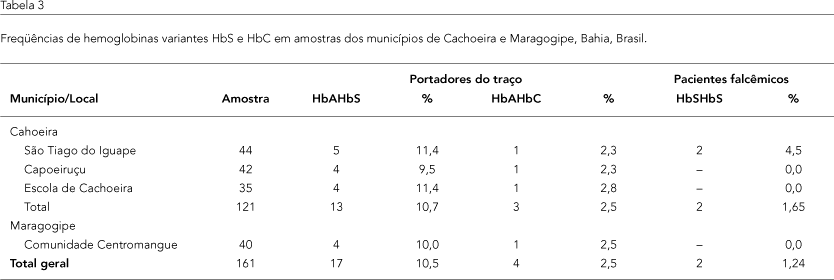In 2001, government ruling n. MS 822/01 by the Brazilian Ministry of Health made neonatal screening mandatory for hemoglobinopathies, with special focus on sickle cell disease, the most common hemoglobinopathy in Brazil. Bahia is the State of Brazil with the highest prevalence of this disease. The current paper reports on the prevalence of hemoglobin variants HbS and HbC, which cause sickle cell disease, in the cities of Cachoeira, Maragogipe, and São Félix, Bahia State. The overall proportion of carriers for the two forms of hemoglobin was 13%. From 2001 to 2003, the neonatal screening rate decreased from 82.6% to 46.4% in Cachoeira and increased from 37.0% to 56.2% in Maragogipe. Thus, only about one-half of children are being tested in these cities. The findings show that the public health care system in these cities is poorly prepared to screen for sickle cell disease in newborns and that there was a lack of health care personnel to follow up on newly diagnosed sickle cell patients or carriers of the sickle cell trait.
Hemoglobinopathies; Neonatal Screening; Sickle Cell Anemia




